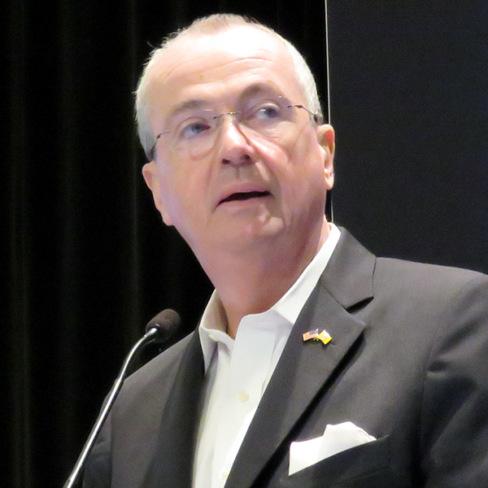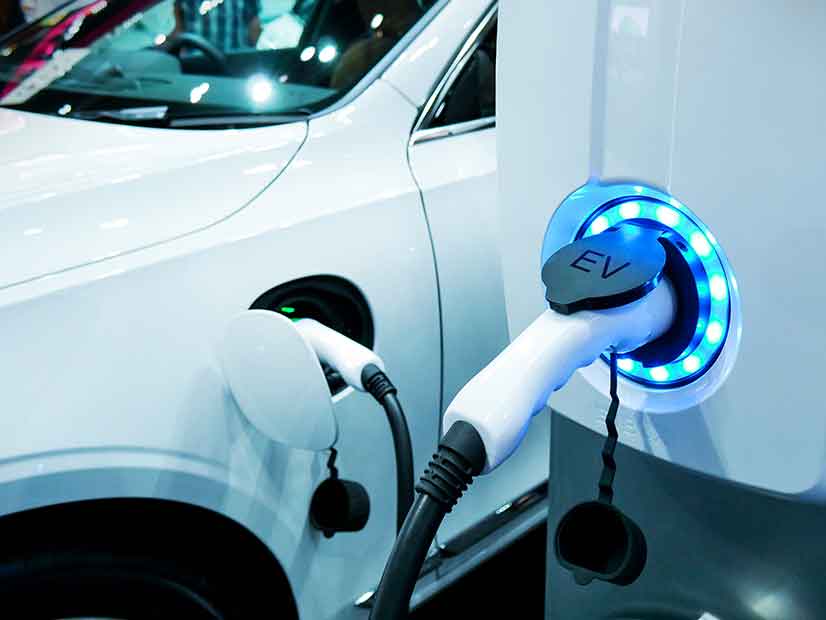New Jersey Gov. Phil Murphy on Friday signed two bills designed to make it easier to set up electric vehicle charging stations in the state, thus removing what is seen as a key obstacle to more drivers getting behind the wheel of an electric vehicle (EV): range anxiety.
He also signed two bills aimed at increasing the number of solar projects across the state as part of New Jersey’s plan to install 32 GW of solar by 2050.
“By signing these bills today, we are marking another milestone on our path to 100 percent clean energy by 2050 and fueling our clean innovation economy,” Murphy said in a statement released about the signing.

Bill S3223 makes the installation of electric vehicle supply equipment or a make-ready parking space ― one in which the wiring is installed now for later deployment of a charging point ― a permitted use under municipal zoning laws, regardless of the stated zoning at the location. The law removes the necessity of seeking a municipal zoning variance if the existing zoning does not permit a charging station, a time-consuming process with an uncertain outcome.
The law also allows a charging site or make-ready parking space to be built at gas stations, retail establishments or any other existing buildings without requiring a municipal land use review. The developers of multi-use buildings will also have to ensure their site plans contain details for putting EV charging stations in 15% of a project’s off-street parking spaces.
Legislators are hoping that the requirements in the bill, and the changes outlined in the second bill, A1653, will boost the number of charging sites across the state, thus easing consumer concerns about EV range — the distance an EV can travel on a single charge — and whether they will be able to find a charging point if needed.
Overcoming that fear is critical for New Jersey to reach its ambitious goal of putting 330,000 new EVs on state roads by 2025. The state had about 41,000 EVs on the roads as of December 2020, according to figures from the New Jersey Board of Public Utilities (BPU).
Requiring Charging Station Plans
The second bill, A1653, requires that any redevelopment plan approved by a municipality must include EV charging infrastructure as part of the planning, development, redevelopment, or rehabilitation of the area. The legislation also adds the construction of EV charging stations to the list of projects for which a local municipality can establish an Economic Redevelopment and Growth Grant program to provide developers with incentives to make improvements to the area. Prior to the law’s enactment, such incentives could only be provided to “infrastructure improvements in the public right-of-way” and “publicly owned facilities.”
Shawn M. LaTourette, New Jersey Department of Environmental Protection commissioner, said in the bill signing release that the two EV-charging bills would “make it easier for New Jersey’s municipalities to create electric vehicle charging infrastructure in their communities.”
The legislation drew the support of ChargeEVC, a nonprofit advocacy group that represents car manufacturers, technology companies, utilities, consumer advocates and others. The Sierra Club’s New Jersey chapter said it generally supported S3223.
“This law is a step in the right direction when it comes to reducing GHGs [greenhouse gases] and protecting our air. As New Jersey works to put EVs on the road, it’s critical that we have the infrastructure to do so,” Taylor McFarland, acting director of the New Jersey chapter, said. But the Sierra Club did not back A1653, saying that the bill’s focus on promoting “zero-emission vehicle fueling and charging infrastructure in redevelopment projects” also encouraged the development of zero-emissions vehicles powered by hydrogen fuel cells.
McFarland raised concerns that most hydrogen production now uses natural gas as feedstock. “New Jersey needs to focus on building its EV infrastructure so that we can fully utilize EV technology and the clean and green benefits that come with it.”
Murphy’s signing of the two bills came three days after the New Jersey Board of Public Utilities launched the second year of its incentive program to encourage drivers to buy EVs, offering point-of-sale subsidies of up to $5,000 for EVs and smaller subsidies for plug-in electric vehicles. (See: NJ EV Incentives Target Cheaper Vehicles, Middle-income Buyers.)
The BPU in March launched a proposal to draft new rules to encourage developers to build chargers around the state, including in lower-income and minority areas that might see fewer chargers installed without government help. Issues under discussion include who should build the chargers, how accessible they should be to the public and when the electric distributions companies (EDCs) should be allowed to develop locations to ensure even distribution of chargers across the state. (See: NJ Looks to Boost EV Charger Numbers.)
The state wants at least 400 DC fast chargers at 200 or more locations by December 2025 and at least 1,000 Level 2 chargers — those with a 240-V electricity source — by the same date.
Promoting Large Scale Solar
Murphy’s 32 GW target would allow solar to provide just over a third of New Jersey’s power as part of the 2050 net-zero target. One of the bills he signed, A4554, will create a new incentive program and competitive bidding process for projects of more than 5 MW, to stimulate solar investment in the state and open the door to larger-scale projects.
The legislation will create a new program of solar renewable energy certificates, SREC-II, to be reimbursed by the BPU for each megawatt-hour of energy produced, with a goal of deploying 3,750 MW of new power generation by 2026. (See: NJ Grid-scale Solar Bill Signed by Murphy)
The bill also sets down rules for what land can be used for larger solar projects, a section shaped, in part, by concerns among farmers and environmentalists that New Jersey’s agriculture industry would suffer if developers were able to buy or lease unlimited tracts of farmland. (See: NJ Solar Push Squeezes Farms).
The second bill, A5434, will create a pilot to develop “dual-use” projects in which solar facilities are sited on land that “continues to be actively devoted to agricultural or horticultural use.” The concept, which is being tested in several states, is touted by solar developers as an example of how they and farmers can work together to benefit both industries.



